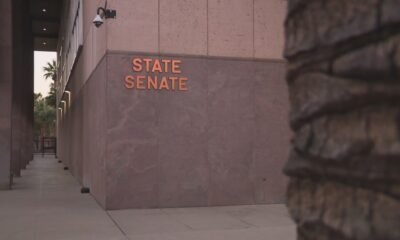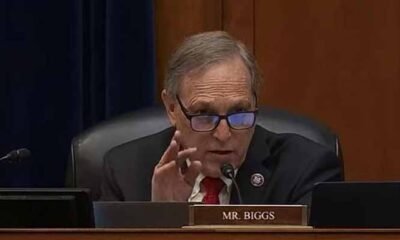Entertainment
Governor Bans Ultraprocessed Foods: What’s Next for Reduced-Price Lunches?

In a significant move, Gov. Katie Hobbs has approved a law banning ultraprocessed foods in school lunches, highlighting ongoing concerns about the nutritional quality of meals offered to students. The decision follows the signing of House Bill 2164, sponsored by Rep. Leo Biasiucci, R-Lake Havasu City, which prohibits the use of eleven specific additives and dyes.
While the ultraprocessed food ban progressed successfully, a related proposal advocating for $3.8 million in funding for reduced-price lunches encountered setbacks. Rep. Nancy Gutierrez, D-Tucson, introduced the measure aimed at alleviating costs for students enrolled in federal reduced-price lunch programs, but it stalled during legislative discussions.
Despite the failure of Gutierrez’s proposal, the funding issue remains a priority among Democratic lawmakers and may receive support from Republicans as budget negotiations are set to begin. The state budget for 2024 previously included a one-time allocation of $3.8 million to help cover co-pays for eligible students, necessary due to the expiration of federal Covid relief funds.
Under the current system, it costs students 40 cents for lunch and 30 cents for breakfast, amounting to an annual expenditure of approximately $126 for families earning between 130% and 185% of the federal poverty threshold. Advocates stress that this amount can significantly impact low-income families, particularly if they have multiple children.
Ashley St. Thomas, director of public policy for the Arizona Food Bank Network, underscored the challenges faced by such families, stating, “That may not sound like a lot, but if you have more than one child and are earning about $42,000 a year for a family of four, it adds up quickly. This would be the first time these families would have to pay that co-pay in five years.”
A study by Arizona State University College of Health Solutions revealed that meal participation among students increased by one million after adjustments in federal policies and sustained state funding. Although Gutierrez’s funding bill initially garnered bipartisan support, it ultimately did not reach the floor for a vote, raising concerns among advocates.
Going forward, Gutierrez remains committed to pushing for the appropriation, expressing optimism about possible collaboration with Republican legislators. Biasiucci confirmed his support for continued funding, emphasizing its importance in ensuring students receive adequate nutrition.
As the implementation of the ultraprocessed food ban unfolds, its financial implications appear minimal. Still, it represents a critical element in the broader discourse about school meal funding. St. Thomas articulated the far-reaching benefits of providing meals to children, linking proper nutrition to improved academic performance and attendance.


















